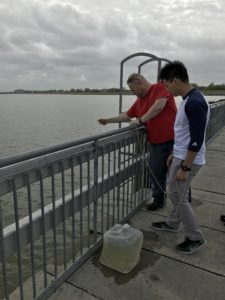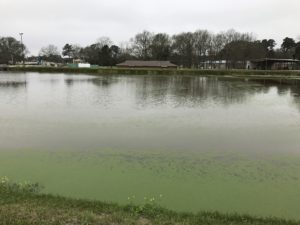Advancing next generation genomic tools for discovery of the watershed microbiome


Nutrient input, organic enrichment and fecal pollution are the leading causes of degraded water quality in rivers and estuaries. Moreover, changing weather patterns including storm events can exacerbate water quality issues in coastal areas. Estuarine systems within Louisiana are critical for coastal ecosystem function and seafood production. However, limited research has focused on the impact on the land use and climate change on the incidence of microbial fecal pollution and the dominant sources of fecal pollution in estuarine systems.
In this project, we are (i) using metagenomics to generate microbial fingerprints (bacteria and viruses) representing a series of watershed samples (including protected and impacted watersheds); (ii) using bioinformatics to analyze the microbial fingerprints in the context of environmental metadata to identify genetic markers which best distinguish healthy versus impacted watersheds; and (iii) developing novel genetic markers using a toolbox approach to provide population diagnostics for monitoring water quality in estuarine environments. The detection of the origin of fecal pollution in complex watersheds is beginning to take a prominent place in hazard identification and risk management policies. Without knowledge of pollution sources, it is difficult to conduct risk assessments and choose effective remediation strategies. The project will develop new knowledge that provides a better understanding of how an estuarine watershed microbiome is perturbed by various biotic and abiotic factors and a new microbial pollution profiling approach that enables identification of specific sources of fecal pollution.
